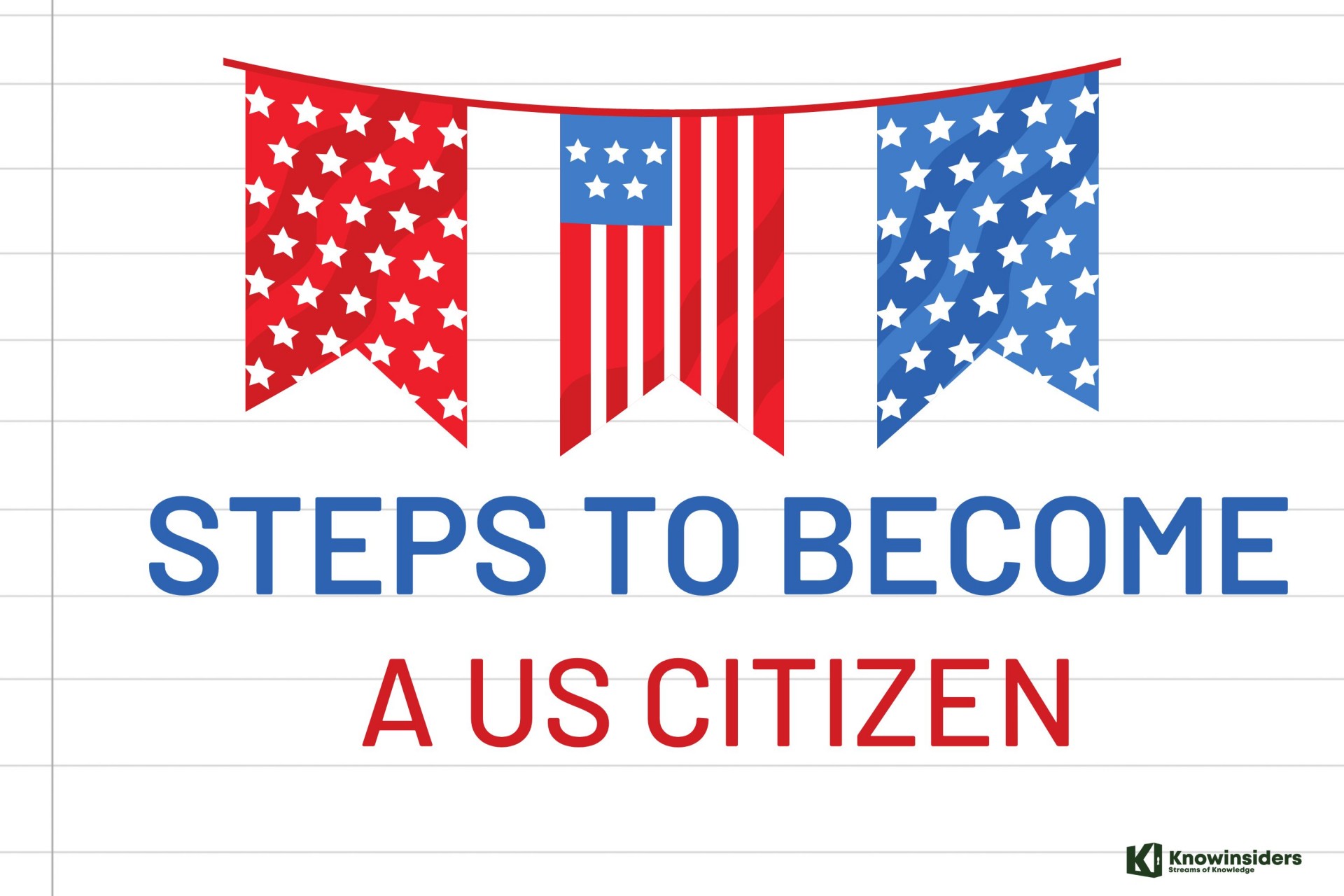What is the U.S Citizenship: Benefits, Responsibilities And FAQs
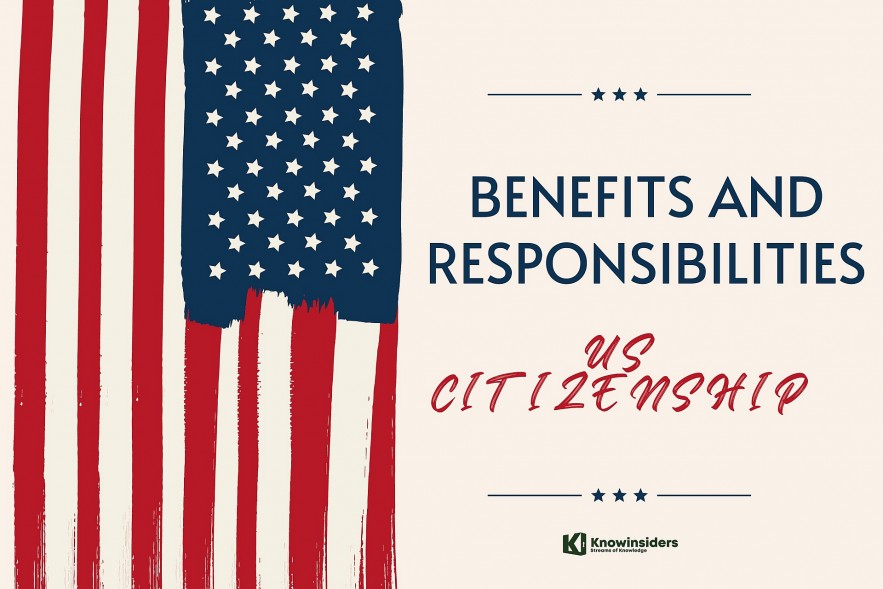 |
| What Is US Citizenship: Benefits, Responsibilities And FAQs. Photo: KnowInsiders.com |
| Table of Contents |
Naturalization is the procedure to become a citizen of the United States. Numerous steps are involved in the naturalization process, which can be challenging and time-consuming. It's helpful to remind yourself of the advantages of being a US citizen as you complete these steps!
What is US Citizenship?
Citizenship in the United States is a status that grants people rights and privileges. It also holds responsibilities, such as paying taxes and voting in elections.
To become a citizen of the US, you must live here for five years (or three if married to a US citizen). You must also pass an English language test, a civil knowledge test, and have no criminal record.
Check More: 100+ U.S. Citizenship Test Questions and Best Answers
What are Benefits of US Citizenship?
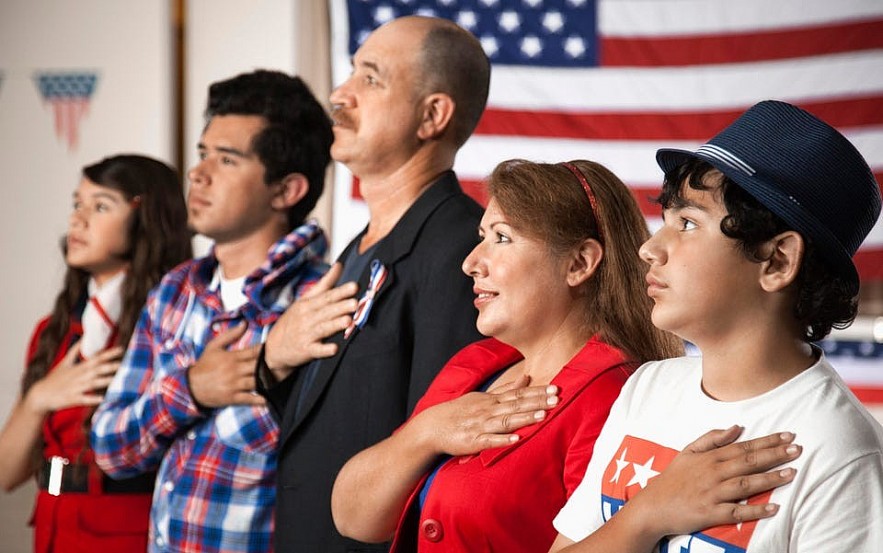 |
| Photo Forbes |
Owning US citizenship means you have a lot of benefits. Below we list out some of the biggest benefits:
• Citizenship gives you protection
With citizenship, you will be protected both in the United States and abroad.
Protection from deportation
If you are a US citizen, you cannot be deported even if you are convicted.
Protection while abroad
When US citizens travel overseas, they are protected by the US government. If you are a citizen of the United States, assistance and information are available at any US embassy or consulate abroad.
Protection when returning home
Travel restrictions must be carefully considered by permanent residents. It is possible to question them at the border. But if you have a US passport, nobody can deny you the ability to enter the country again.
• Citizenship makes you feel like you belong in the United States
• Citizenship connects you to your new country in so many ways.
• Pride and patriotism
New citizens often feel proud of their new country and proud to say they are American.
• Elected positions
As a U.S. citizen, you can hold office positions by election. Naturalized citizens can run for any office except for the presidency of the United States. The right to run for President is only open to residents born in the United States.
• Opportunity to bring family to the United States
Citizens have priority over permanent residents when they want to bring family members to live in the United States.
• Benefits of U.S. Citizens to Children
If your child is under 18 years of age and resides in the United States, they will automatically qualify for citizenship when you naturalize.
• Citizenship expands your rights
By law, everyone has certain rights in the United States. But one of the benefits of US citizenship is that you get more rights. For example:
You have the right to vote
You are entitled to Health Insurance
• Citizenship brings economic benefits
Working for the government is frequently more lucrative and secure than working for private companies. The majority of American jobs are in the government sector. Yet only citizens are eligible for a large number of government jobs. The majority of federal government positions are only available to citizens.
Accepting US citizens is also a top priority for many employers in the private sector. The ability to work in the private sector is one advantage of being a citizen of the United States. After naturalization, Americans make roughly 9% more money overall.
The government offers several benefits to its citizens who are elderly or have disabilities. You won't get these benefits if you're not a citizen for longer than seven years.
Is there any limit to being a US citizen?While dual citizenship is permitted in the United States, it is not in all other nations. For instance, in order to benefit from the privileges of being a citizen of the United States, you will need to renounce your citizenship in China, India, Myanmar, or Norway. |
What are the Responsibilities of US Citizenship?
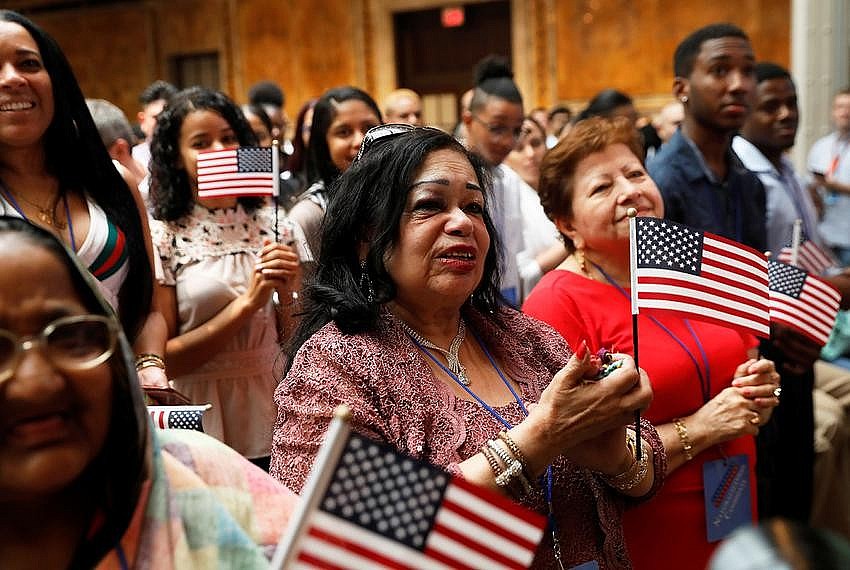 |
| Photo Texas Tribune |
Being a citizen of the United States has many wonderful advantages, but it also has certain obligations, like paying taxes.
Obeying the law
Every U.S. citizen must obey federal, state and local laws, and pay the penalties that can be incurred when a law is broken.
Paying taxes
Every American citizen is expected to follow all federal, state, and local laws and to pay the fines incurred when they are broken.All citizens are required to pay taxes in one way or another, including sales, property, federal, state, and local taxes as well as Social Security taxes. Every tax supports services and initiatives that would not be possible to sustain without the help of tax payments, such as national defense, schools, roads, law enforcement, and fire protection.
Serving on a jury when summoned
All people, citizens or not, are entitled to a jury trial consisting of their peers. Jurors are chosen at random from the entire citizenry of a jurisdiction, and they must be available to serve when called upon for jury duty. In addition, a citizen may be called upon or subpoenaed to testify as a witness in court. In such a case, the citizen must show up and provide information relevant to the case under oath.
Registering with the Selective Service
In the event of a war or other national emergency, the Selective Service, a federal agency under the executive branch of government, is ready to promptly reopen the draft in order to supply the armed forces with the necessary number of men. Almost all male U.S. citizens and male noncitizens between the ages of 18 and 25 are required by federal law to register with the Selective Service. Men who fail to register may face legal action, and if found guilty, they could face a fine of up to $250,000 or even five years in prison. In order to be eligible for a number of federal programs and benefits, such as student loans, job training, federal employment, and naturalization, one must also register for Selective Service.
Voluntary Responsibilities of U.S. CitizensWhile not required, additional civic duties are essential to democracy. It is encouraged for US citizens to use certain rights and privileges, such as: Casting a ballot. Voting is a duty or responsibility as well as a privilege and right of citizenship. It is the duty of American citizens to take part in their government by registering to vote and casting ballots in elections. Voting gives people a say in their government and contributes to the upkeep of the democratic representative form of governance. retaining knowledge. It is the duty of citizens to participate actively in civic processes and to remain informed about issues that impact both their local communities and the larger national and international community. This includes using their right to petition the government through activism, participating in political campaigns or running for public office, and being well-informed about the issues and candidates before casting a ballot. Engagement with the community. Along with identifying areas in which assistance or change is required, citizens should also engage in the community by lending their skills and knowledge to committees, local organizations, and community projects. Being tolerant of others. Diversity is a natural byproduct of democracy, and it is the duty of American citizens to uphold and defend the rights of others as well as to respect the diversity of beliefs, cultures, ethnic groups, and worldviews. transferring it. It is the duty of citizens to teach the next generation the value of responsible citizenship. Parents and mentors set an example for their children on how to make society better by teaching them the importance of voting, staying informed, getting involved, and obeying the law. |
US Citizenship: FAQs
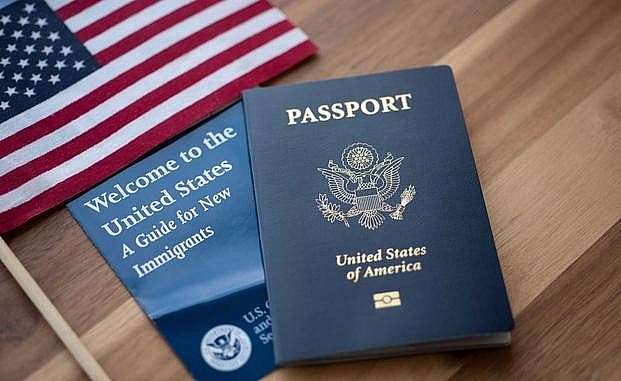 |
| Photo stock passport |
What is the difference between a Permanent Resident and a US Citizen?While both citizens and permanent residents are eligible for federal social programs, there are important distinctions between the two groups. • U.S. citizens have the right to vote in the federal, state, or geographic region in which they live, but permanent residents do not have the privilege of voting. • Permanent residents can only hold a passport of their home country, however US citizens can own a powerful US passport. • U.S. citizens are not subject to deportation, but permanent residents can be deported to their home countries in certain cases in violation of U.S. law. • US citizens can run in a public election, permanent residents cannot. • US citizens can join the US Armed Forces and defense services, permanent residents cannot. • US citizens are not bound by visa quotas to bring their family members to the US, but permanent residents have certain limitations in this regard. |
What is the government agency that handles citizenship applications?The Department of Homeland Security's U.S. Citizenship and Immigration Services (USCIS) is the division in charge of handling citizenship applications. This department of the federal government only handles applications. There are no state organizations or agencies engaged. |
Who is eligible to apply for U.S. citizenship through naturalization?Eligibility for naturalization generally depends on a number of factors: • How long you’ve had your green card • How long you’ve physically lived in the United States • Whether you’ve served in the U.S. military (and if so, whether your service was during “peacetime” or “wartime” |
How many ways to become a U.S. citizen?There are three ways: • Birth in the U.S. • Naturalization • Citizenship through U.S. citizen parent |
Will I need any additional documents for citizenship application?Yes, you may submit your N-400 application with the following initial evidence: • A copy of your Permanent Resident Card • A copy of your marriage certificate (if applicable) • Form N-426, Request for Certification of Military or Naval Service (if applying for naturalization based on military service) • DD Form 214, NGB Form 22, or discharge orders (if applying for naturalization based on military service and separated from service) • A copy of your official military orders (if applying for naturalization based on military service and currently serving) • Evidence of your citizen spouse’s employment abroad (if applicable) • Two passport-style photographs (if you reside outside the United States) The original documents mentioned above must be brought to your naturalization interview. Additionally, depending on your circumstances, you might need to bring additional paperwork to your naturalization interview. For instance, you must present documentation proving your good-faith marital relationship and shared residence for the previous three years if your application for citizenship is predicated on a three-year marriage to a citizen of the United States. If you have a criminal history, you will need to bring a certified copy of any court orders, police reports, or comparable documentation. In the event that you travel outside the country for longer than six months, you will need to provide documentation attesting to your continuous residency in the country during that time. See our article on what to bring to your N-400 citizenship interview for more information. |
How much does it cost to apply for naturalization?Naturalization applications currently require a $725 government filing fee, which includes $640 for processing and $85 for biometrics services. The application filing fee and the biometrics fee are waived for applicants who are in the armed forces. 75 years of age and above are excused from the biometrics fee (for more information, see our comprehensive guide to naturalization fees). For just $199, Boundless and RapidVisa provide comprehensive, individualised assistance with naturalization from beginning to end. |
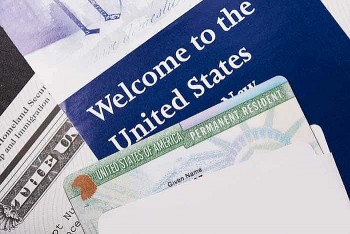 What Is A Green Card or Permanent Resident Card in the USA? What Is A Green Card or Permanent Resident Card in the USA? Possessing American citizenship is something that many people desire. This article will give you insights about what US green card is and related information. |
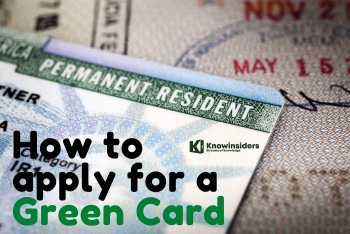 How To Apply For A Green Card in the US How To Apply For A Green Card in the US Thinking of working overseas, most of us will dream about the US because it is a country with many job and settlement opportunities. The US ... |



